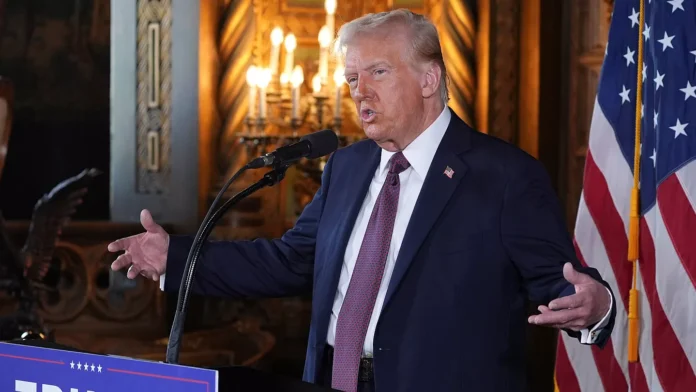The report about Donald Trump expressing interest in acquiring territories like the Panama Canal, Greenland, or Canada is highly provocative and seems to align with his unconventional approach to geopolitics. Here’s a summary of key points from this development:
Trump’s Statements on the Panama Canal and Greenland
During a press conference at Mar-a-Lago, Trump reportedly refused to rule out using military or economic force to gain control of the Panama Canal and Greenland. He emphasized their importance for “economic security” and suggested that Denmark relinquish Greenland or face high tariffs. He even floated the idea of Greenland’s residents voting for independence or U.S. statehood.
Trump called the Panama Canal’s handover under Jimmy Carter a “disgrace,” criticizing the agreement that transferred control to Panama in the late 20th century.
Canada as the 51st State
Trump also reiterated his interest in integrating Canada into the United States, though he stated he would only employ “economic force” to achieve this. He framed the concept as beneficial for national security and expressed dissatisfaction with what he described as “artificially drawn lines” between the two nations.
Renaming the Gulf of Mexico
Another surprising remark from Trump was his proposal to rename the Gulf of Mexico as the “Gulf of America,” suggesting it reflects a more comprehensive territorial assertion.
Election Certification and Transition Criticism
The press conference came a day after Congress certified Trump’s electoral victory, confirming his return to the presidency with 312 electoral votes. Trump criticized the Biden administration for its handling of the transition, accusing it of impeding reforms and blocking energy exploration.
Analysis
Trump’s remarks about using force to gain control of territories and altering geopolitical boundaries reflect his bold rhetoric and willingness to challenge conventional norms. While such statements may resonate with some of his supporters, they are likely to draw criticism from international partners and political opponents, raising questions about the implications for global diplomacy and security.
Note: If you want further insights, analyses, or specific aspects explored, feel free to let me know!


